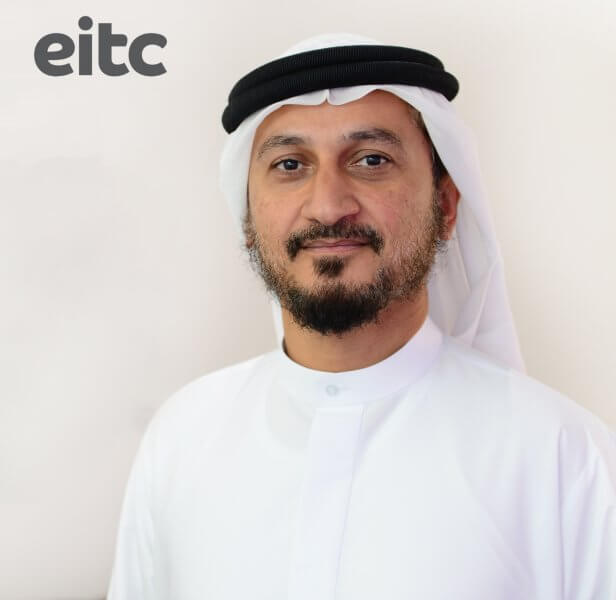CNME spoke to Saleem Al Blooshi, Chief Technology Officer, at EITC, to find out when 5G will become commercially available in the UAE, the challenges surrounding the definition of 5G use-cases, and the benefits next-generation technologies will bring for du customers.
EITC announced ambitious plans to deploy around 700 5G-enabled base stations by the end of 2019, which would ensure it would be one of the first operators in the world to provide 5G services in 2019. Are you still on track to make 5G commercially available this year?
We’ve been rolling out our commercial 5G since early Ramadan. On June 12th, we launched 5G in distributed locations in Abu Dhabi and Dubai. We are adding new sites every day, and we have now over 100 sites across the two locations out of the 700 5G-enabled base stations we planned to have live by the end of 2019.

The target of deploying 700 5G sites is dependent on the pick-up and adoption of 5G-enabled smartphones. The First 5G device that is commercially available is the ZTE Axon 10 Pro 5G smartphone.
We were the first to make the ZTE handset commercially available in the UAE. Currently 5G powered handsets manufactured by Huawei Mate 20X is available to our customers , whilst Samsung is expected to launch their 5G devices in (August)
In addition to this, Huawei announced that the UAE will be the first international market that it launches its 5G handsets, so based on the availability of the handsets, now that ZTE, Huawei and Samsung all have 5G devices in the UAE market, we believe that September will be a good time for us to check the status of the market. We believe that there will be a significant adoption in 5G handsets from consumers in the country, and we’re projecting that we will accelerate our rollout of 5G as a result.
As I’ve already highlighted the target of 700 5G sites was from our Q1 plans for 5G in 2019, if customers adopt 5G handsets as we project them to do, then we’ll reach that target in Q4. However, as I’ve stressed this is all dependent on market dynamics.
What impact will the commercial deployment of 5G services have for EITC customers? We know 5G will reduce latency and enhance the consumption of digital content for consumers, what other tangible benefits will it provide?
The deployment and maturity of next-generation technologies will deliver three variables, which are higher speeds, latency and Internet of Things. However, at this stage of the 5G standardization process, the only aspect it is currently delivering on is in relation to speed. It’s very important that we set the right expectation for customers as we continue to rollout our 5G infrastructure and technologies.
We’re currently using non-standalone 5G, which relies on the existing 4G networks. So there hasn’t been an independent implementation of 5G. 4G remains the underlying technology.
We expect that by the end of 2020, the standard bodies will be ready with the standardization of standalone 5G. When the standalone 5G becomes available that’s when we’ll be able to utilize the capabilities of the three variables we already discussed which are latency, connected devices and speed.
There are two challenges surrounding 5G and one of them is defining the use-cases. What killer application is going to be created that monetizes the high throughput and the lower-latency capabilities of 5G? It’s obviously not clear at this stage and that’s why many operators are reluctant to over invest in their 5G infrastructure until concrete use-cases emerge.
We have so many creative minds and ambitious entrepreneurs that we know they’re going to utilize the capabilities of 5G. We had the exact same discussion when leveraging investment in 4G. The dynamics in relation to how we engineer the networks are continuously evolving and we expect 5G to go through the same life cycle as 4G.
EITC enjoys a close partnership with Chinese ICT vendor Huawei. How important is your collaboration with Huawei, and what are your opinions on their treatment at the hands of the US?
From a technology perspective, Huawei has the competitive advantage. They’re the leading vendor globally in terms of developing 5G solutions and that is a fact. However, we’re also working with other ICT vendors such as Nokia, and they have a clear roadmap on how to bridge the gap to Huawei.
Obviously, there’s been a huge amount of publicity surrounding Huawei due to the current trade war between the US and China. However, for us it’s business as usual with Huawei in the UAE.
We have not seen any security threats from Huawei and we’ve got a specialised security team within du that regularly and robustly tests our networks. When we implement new technologies like 5G, we send our engineers to the manufacturing entities’ labs to inspect the hardware from an end-to-end perspective in a bid to identify whether there are any abnormalities in the system.
This is also the case internationally, with the UK announcing recently that it hadn’t detected any security concerns with Huawei. For us it’s business as usual, and we strongly value our partnership with Huawei. However, if Huawei was exposed as a security risk, our 5G aspirations would be largely unaffected as we work in a multi-vendor environment and have close collaborations with Nokia, Ericsson and ZTE.





